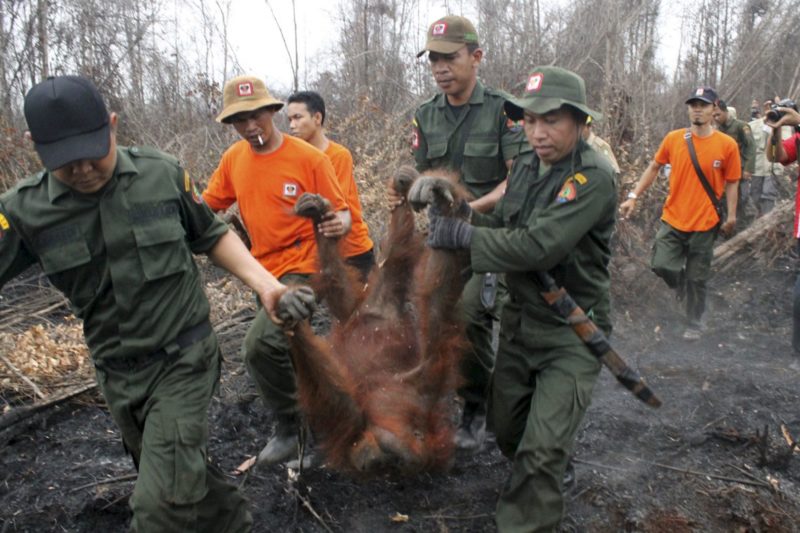The 2015 fire and haze event had severe effects for people and the environment. Since then, governments, companies, local communities, NGOs and donors have engaged in a variety of initiatives to prevent and manage forest fires

A national policy dialogue organised by the Centre for International Forestry Research (CIFOR) in Pekanbaru (Riau, Indonesia) on Wednesday, August 30, 2017 brought together different stakeholders to share their experiences with the prevention and management of forest fires. Together, they analysed progress so far and discussed a way forward and best practices for legislation, law enforcement, implementation and collaboration.
Local regulations are more effective
Academics and researchers at the event highlighted that regulations are more effective at the provincial, regency and city levels, issued in the form of local laws (Peraturan Daerah, or Perda). The advantage of this type of legislation is that it is binding and enforceable.
Local regulations should focus on offering incentives not to burn forest land; improving coordination among farmers for fire prevention and restoration; strengthening law enforcement; developing water management and infrastructure; and improving initial responses to fire. New legislation should be based on solid scientific evidence and support community-based restoration.
“We are happy that our research outputs can be used by all stakeholders to inform public debate, policies, regulations and best practices,” said Dr. Herry Purnomo, a scientist at CIFOR on behalf of the team of researchers. “We expect that the insights shared today will contribute to the reduction of fire and haze, not only in Riau but also in other regions of Indonesia.”
Sharing knowledge and collaboration
Participants agreed that best practices for fire prevention and restoration need to be established and communicated. Governments, corporations, communities and academics must share lessons learned about what works and what does not work. For example, ‘fire-free village’ programs run by different stakeholders must be evaluated and compared.
Partnership and collaboration across sectors is also essential to improve law enforcement and the implementation of best practices on the ground. At a regional level, bilateral and multilateral cooperation between ASEAN member states and stakeholders will also support fire prevention.
